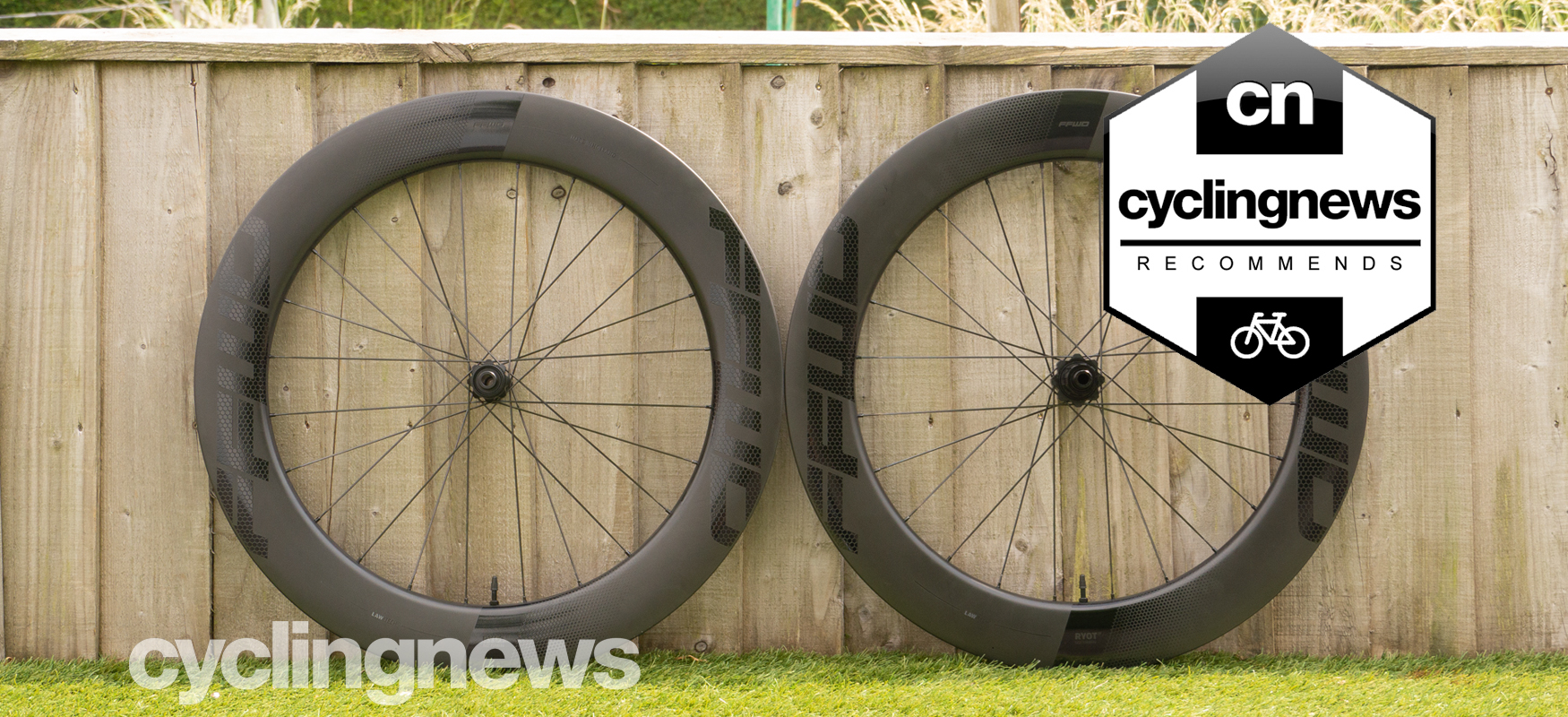Cyclingnews Verdict
Impressively composed despite their riotous name, with the speed to match, but don't expect to win any races up hill
Pros
- +
Stable in crosswinds
- +
Tubeless valves and wheel bags included
- +
True to their 'fast' brand name
Cons
- -
Weight of 1,880g is noticeably heavy
You can trust Cyclingnews
In the Summer of 2020, FFWD unveiled the first of its RYOT wheelsets when it launched the versatile RYOT44 and lightweight RYOT Raw wheelsets, which eschewed the brand's former 'double arc' rim profiles in favour of a wider, straighter, more blunt profile. According to FFWD, the new design was not only better designed for wider tyres, but it was also faster.
In the time since, the brand has been busy, following that up with the RYOT 55 and RYOT 33. Today, FFWD has yet another numerical suffix on offer, the RYOT 77, which is aimed squarely at its time trial, triathlon and aero road customers.
Following the nomenclature of the rest of the range, the RYOT 77 wheels are 77mm deep front and rear, meaning they are dedicated aero wheels that, in FFWD's words, are suitable for "all kinds of conditions of circumstances."
From the brand's launch documentation, it's clear that these wheels are aimed at time triallists and competing with the best triathlon wheels with talk of pairing the front wheel with a disc rear. FFWD sells the front as a standalone wheel - but not the rear - for this very purpose. But FFWD also says "You can use it in other disciplines like road as well. Use it as the wheel of choice to be in the early breakaway of a flat stage or the wheel to finally sharpen your personal best on that high speed segment." So does that mean they are worthy of inclusion in our guide to the best road bike wheels too?
To find out, we've had our hands on these wheels for three weeks already, and we've used them in a variety of ways to form an opinion of their performance. They've been fitted to a road bike on a weeknight hit out, they've enjoyed weekend endurance rides, and they've been fitted to a time trial bike for a few local time trials.
The conditions they've seen have ranged from damp to dry and stormy to still, so we feel like we've gained a good insight into their handling and their crosswind stability. Plus we've set them up both tubed and tubeless with a variety of tyres, so we can report on the ease of setup.
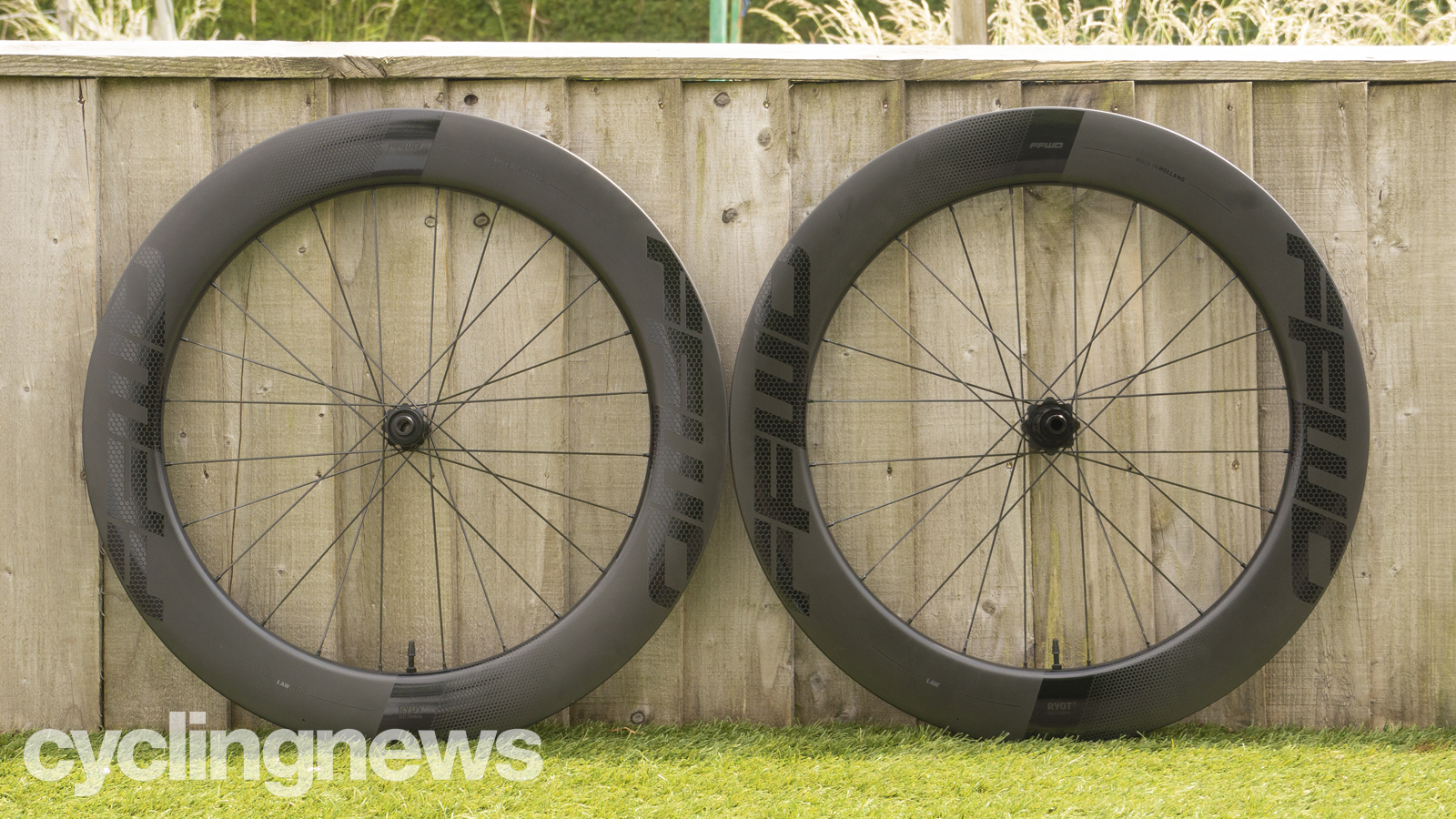
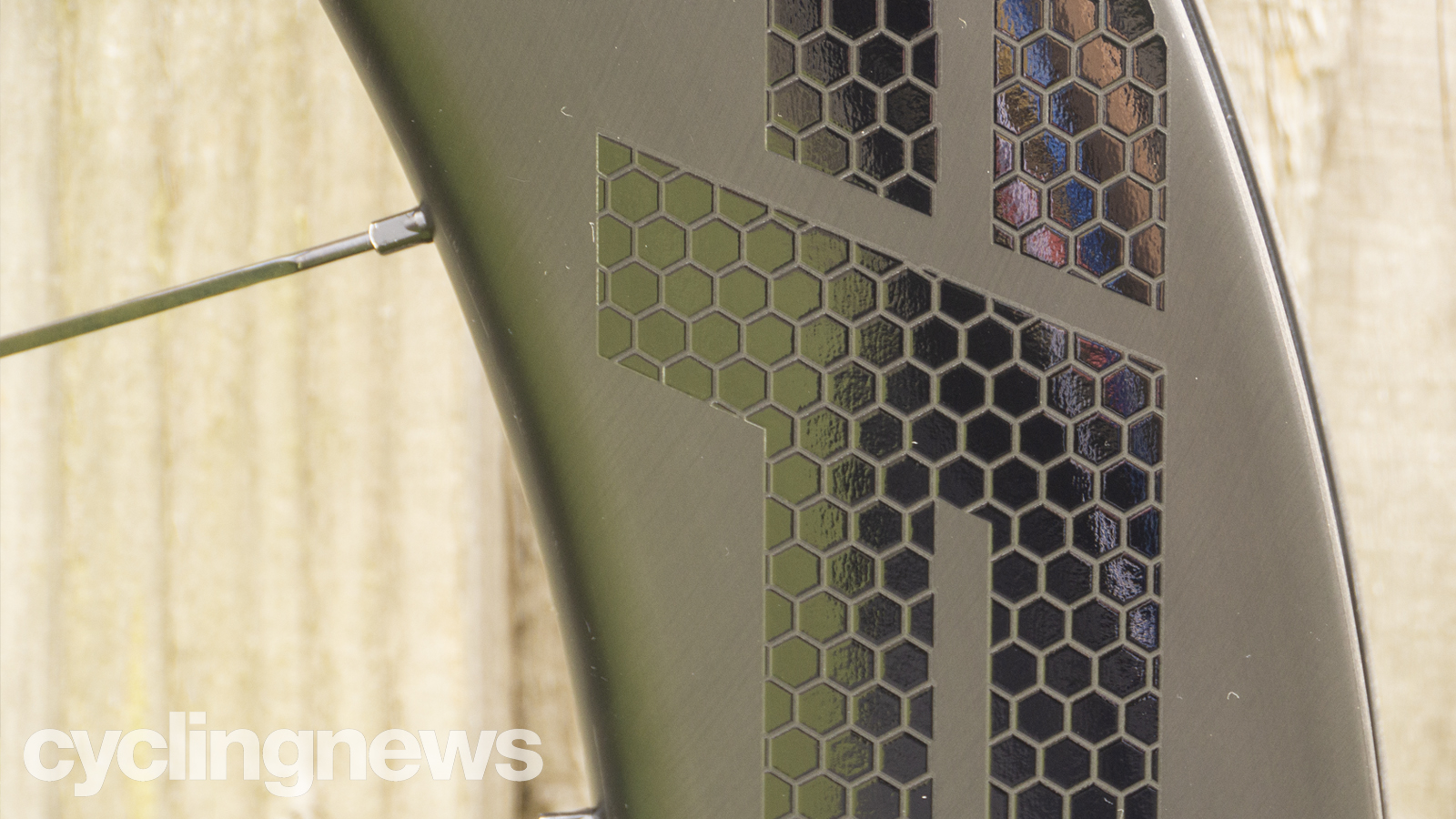
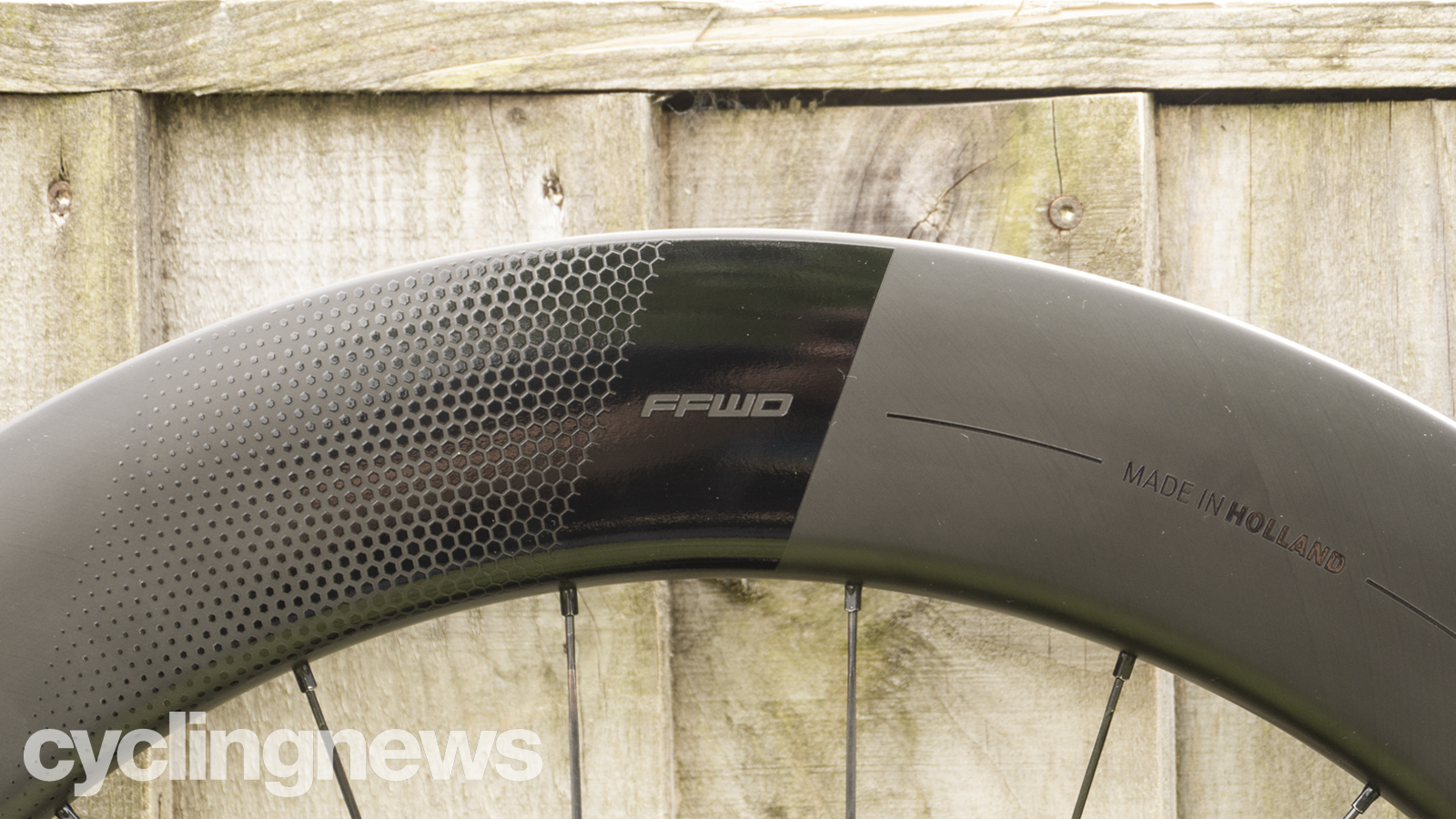
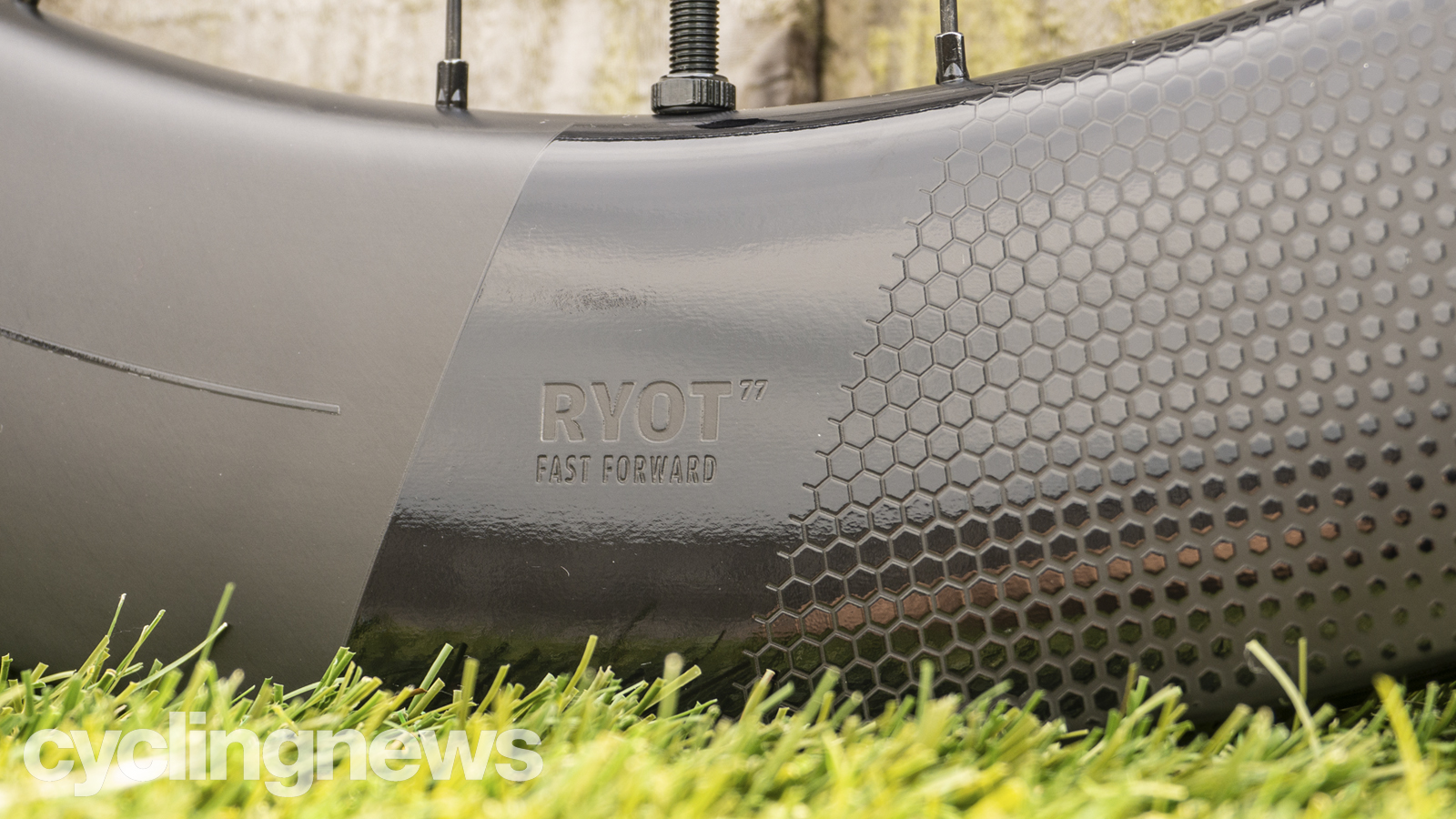
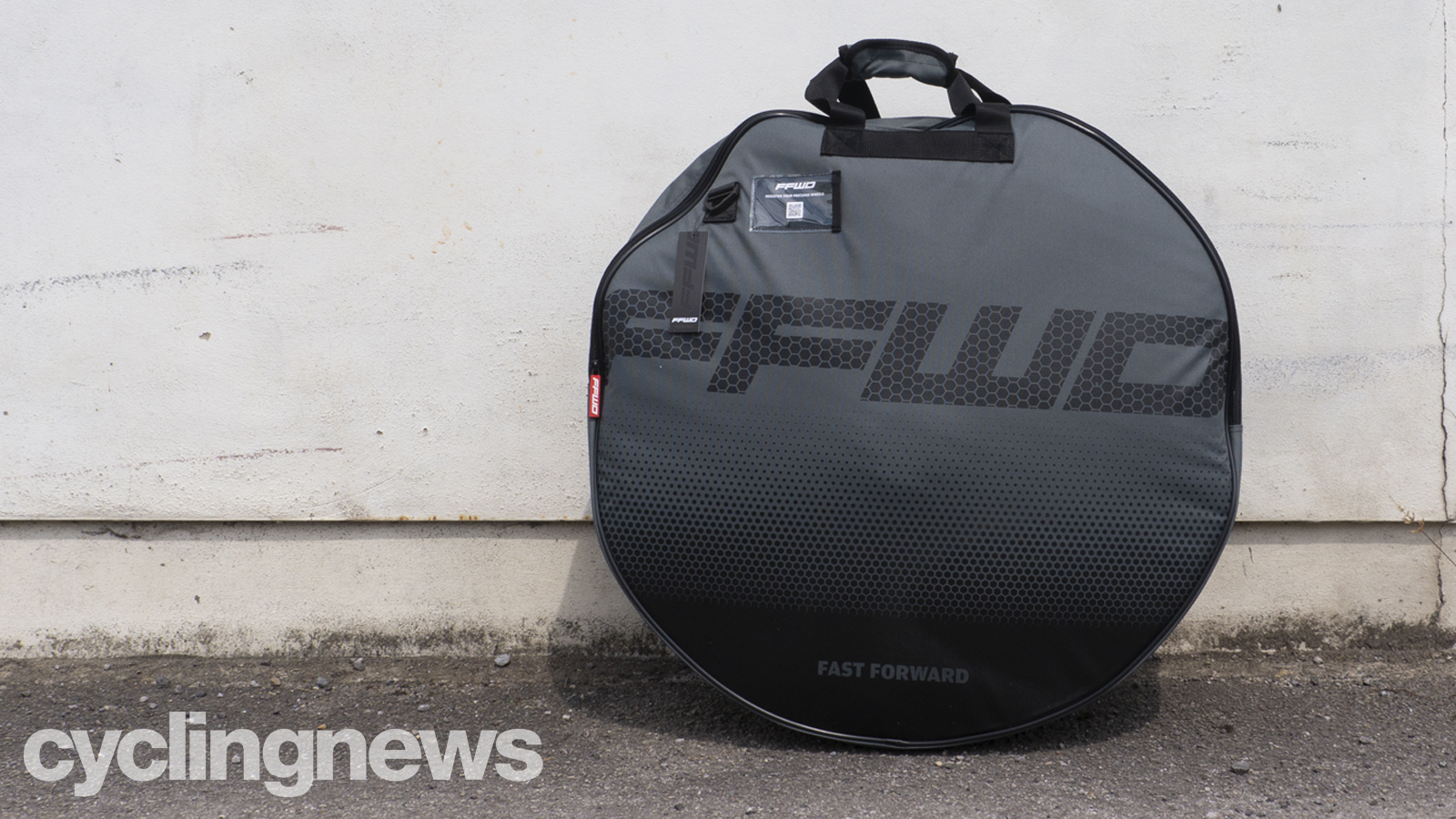
Design and aesthetics
On paper, you'd be forgiven for assuming FFWD has opted for an understated and stealthy aesthetic with the RYOT 77 wheels, based on the black-on-black design approach. But in reality there's no pretending that these are anything other than FFWD wheels, with the matte-effect naked carbon fibre being garnished with two large FFWD logos on opposing sides of each rim sidewall.
In addition to these logos, a smaller FFWD logos are imprinted into a block of gloss black, opposed by a similar block which houses the 'RYOT 77 Fast Forward' logo next to the tubeless valve. Each of these blocks give the appearance of movement with the addition of trailing, fading hexagonal dots.
Completing the aesthetic is the loud-and-proud announcement of "made in Holland", as well as a mention of "LAW Tech" which we'll explain in a moment.
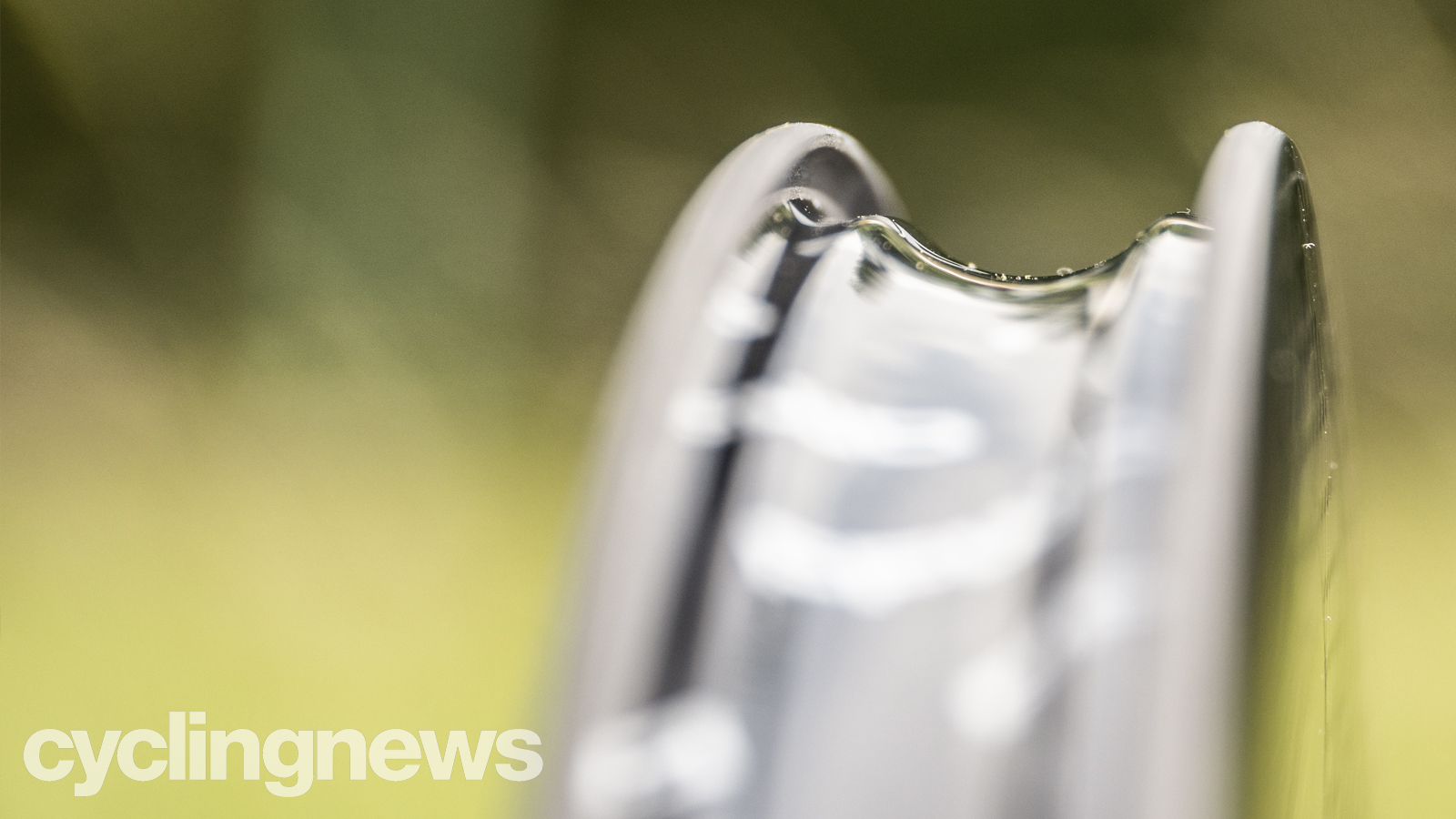
Specification and build
The RYOT 77 rims feature an internal width of 21mm with a 31mm external. However, unlike many of its competitors, FFWD has continued to use a hooked bead, rather than make the switch to hookless.
We're happy to take FFWD's word when it says the wheels were designed to work best with 25mm tyres, since the transition between our 25mm Vittoria Corsa Speed tyres and the rim sidewall is smooth, with no obvious bulging or step up. With that said, when we fitted some 26mm S-Works Turbo RapidAir tyres, and subsequently some 28mm Goodyear Eagle tyres, the width obviously increased, but at no point was there a lightbulb shape to the tyre, so we'd be comfortable and happy to ride with any of the above widths, depending on the type of ride ahead.
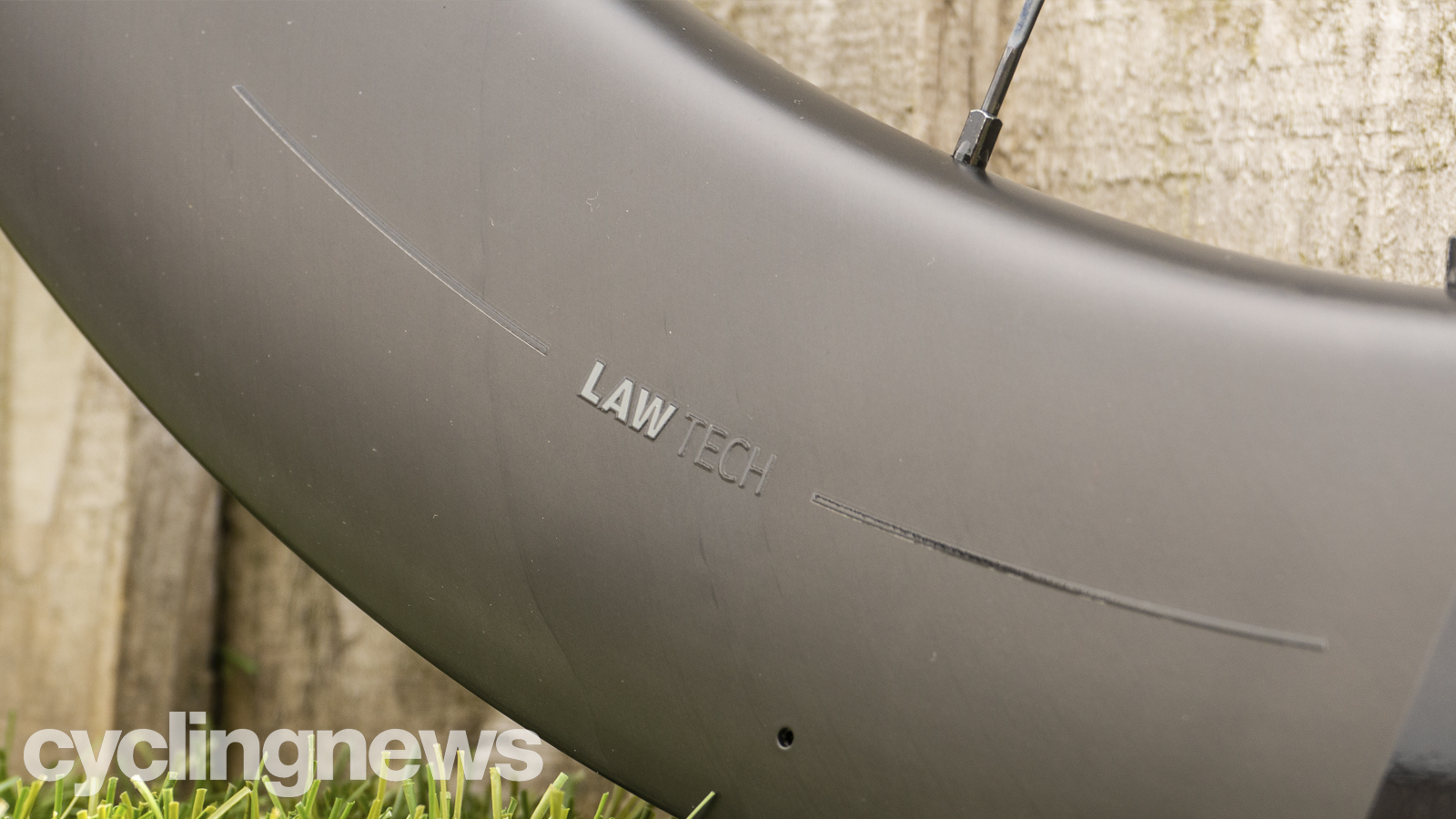
The rims themselves are designed using a technology that FFWD calls LAW Tech. LAW stands for Laminar Airflow Wing, and according to FFWD, it is designed to ensure the wind stays attached to the rim for longer, aiding with both straight-line speed and the reduction in turbulence.
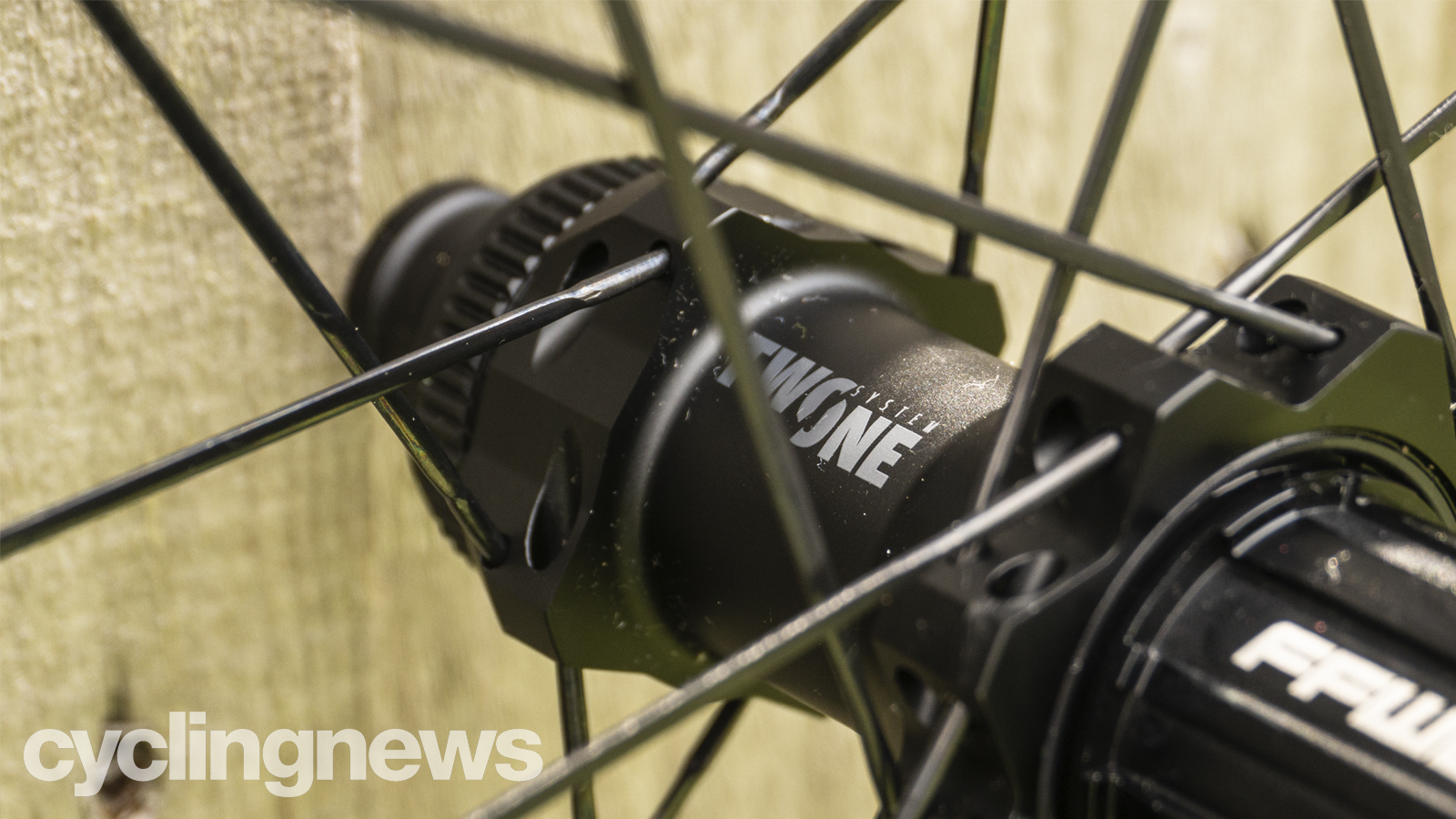
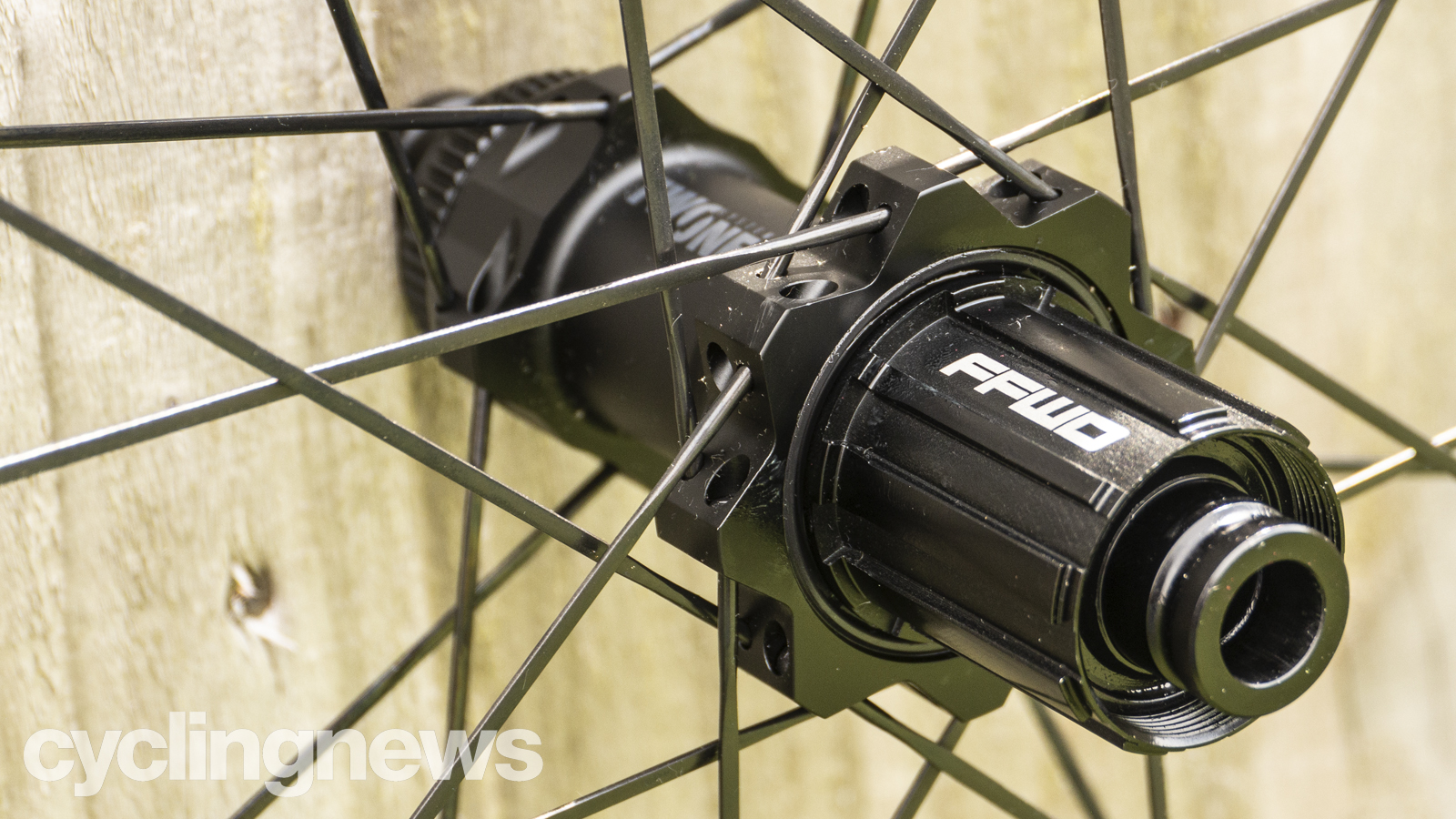
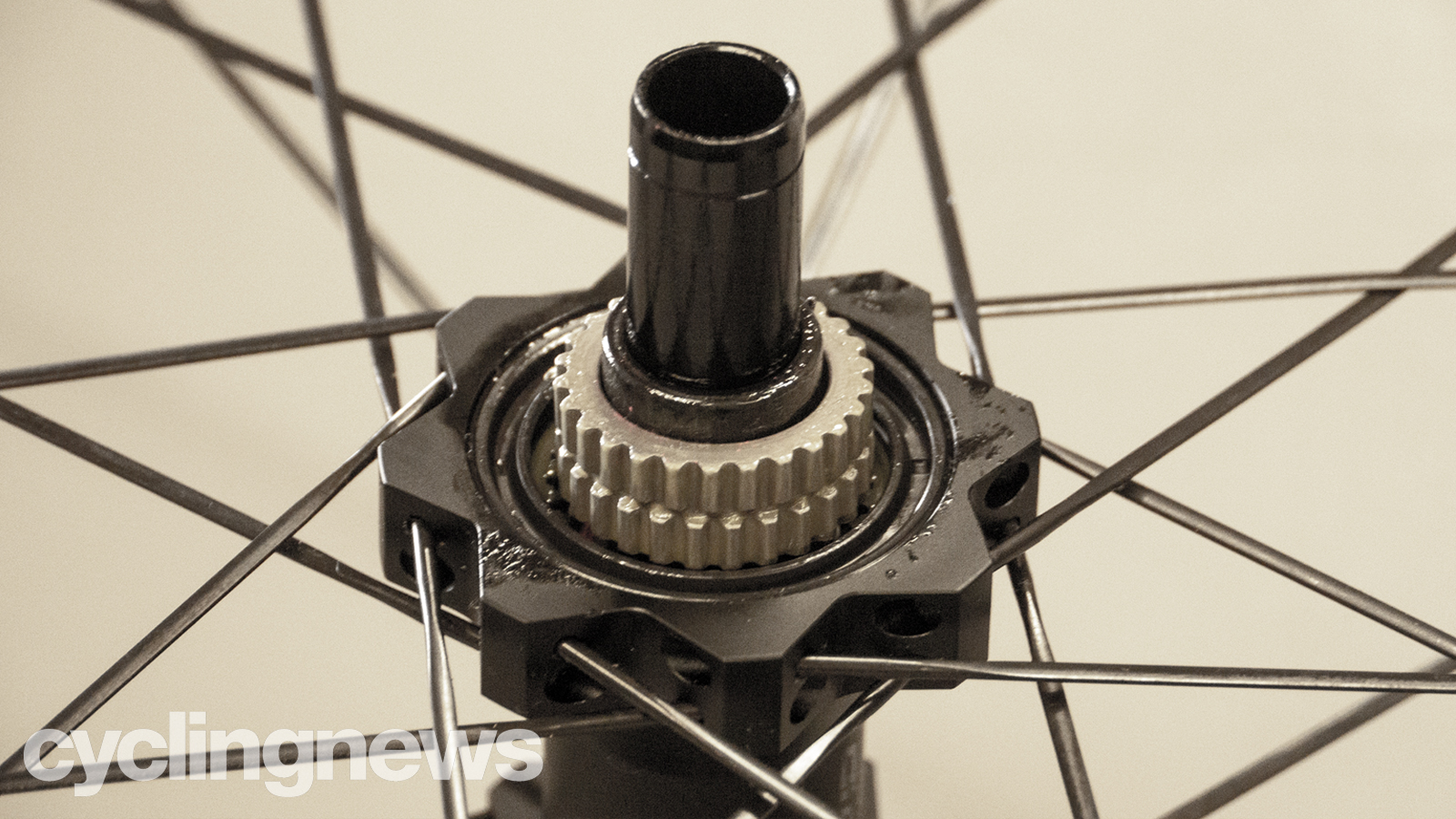
The RYOT 77 wheels will launch with two hub variations available. The first will be given FFWD's own Two-One hubs, priced at £1,474.99 / €1,599.00, and will be available at launch.
They come with a claimed weight of 1,830 grams, although on our scales, these RYOT 77 wheels weighed in at 1,880g, complete with pre-installed tubeless tape and a Shimano HG 11-speed freehub body.
The second variant, which will be available from September, will be given an upgrade to DT Swiss' DT240 Ratchet EXP hubs. Priced at £1,749.99 / €1,899.00, FFWD claims these are lighter to the tune of 90 grams per pair, at a total of 1,740g.
Both variants get the very same rims, and each are laced using 24 of Sapim's CX Ray/Sprint straight-pull spokes. They are available in disc brake variants only, and while both hub variants have a centrelock rotor fitment, it's worth noting that they don't come with a lockring for this, so we had to borrow some from another wheelset currently in for test.
Performance and handling
As mentioned, we've fitted the RYOT 77 wheels to both a road and time trial bike during testing. Starting with a latex inner tube inside 28mm Goodyear Eagle tyres, despite their 77mm depth, the first ride was immediately impressive, due to their crosswind stability. The conditions were dry, but the wind was blowing at around 30km/h, and despite this, after just 10 minutes of riding, I found myself confident enough to drop into the now UCI illegal 'puppy paws' position whilst barrelling along flat terrain.
And barrel along is exactly what these wheels are made for. At 1.88kg, they take a noticeable amount of extra torque to get them spinning (when compared to a road wheel at the 1.5kg mark), and they're definitely never going to outclimb the best lightweight wheels, but once you're up to speed on flat ground, there's a definite sense of improved momentum, and holding 40km/h (25mph) on flat terrain was made a much more comfortable effort.
Switching up the bike for a time trial bike, I opted for the tried and tested 25mm Vittoria Corsa Speed tyres and this is where the tubeless setup test came into play.
Unfortunately, my experience here wasn't quite as plain sailing as their performance on the road. While many tubeless wheel-tyre combinations I've tried recently have seated immediately, using little more than a track pump and without a need for sealant, the FFWD RYOT 77 took nearly every trick in the tubeless handbook to get them to seat correctly, short of re-taping the rims.
That meant removing the valve core, using a tubeless charger, adding sealant prior to seating, spinning the wheel, rolling the uninflated wheel on the floor, and manually working the tyre to ensure it had a sealant coating before finally managing to get it to catch, and even then, there was a fast leak that meant I couldn't get it beyond 50psi until I'd manually worked the now-half-inflated tyre into the bead.
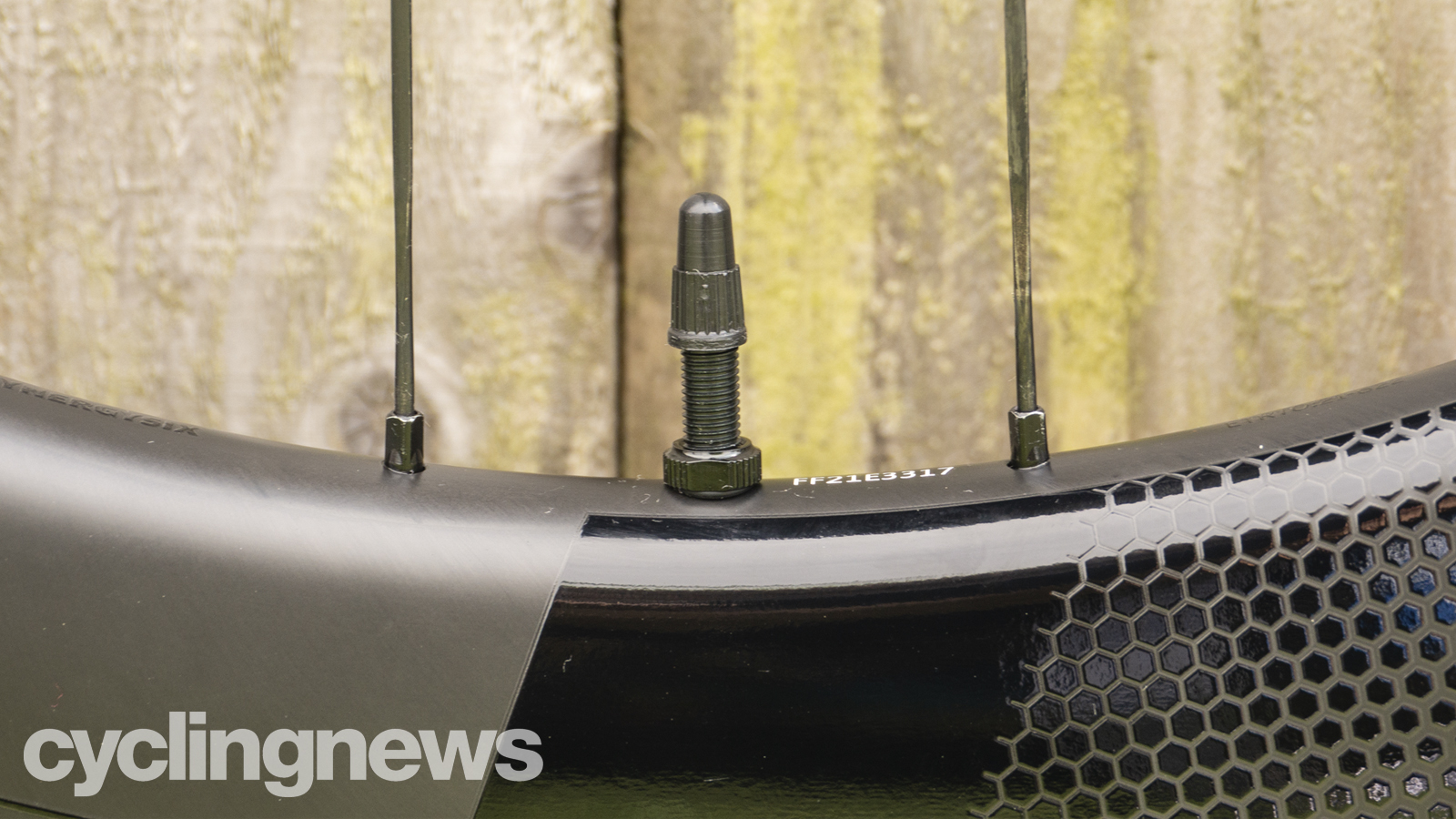
However, there are positives. Firstly, tubeless valves are included with the wheels and their seal is excellent - better than any I've tried, in fact - without needing to feel like you're overtightening the nut that holds them in place. Secondly, the tape is also included, and pre-installed, for simplicity. And thirdly, since the wheels have been set up tubeless, they have maintained pressure better than most, only losing around 5psi per day.
When it came to using them on the time trial bike, I was once again wary of crosswind stability, but I was left equally - if not more - pleasantly surprised as to their stability and composure. Whether it's the weight penalty of these wheels or the fruits of the LAW Tech labour I'm unsure, but the stability of the RYOT 77 wheels is better than some I've tested that are 10 and 20mm shallower.
Their ability to maintain speed is impressively noticeable, and I've knocked out PRs on both of my 'usual' club TT courses. Of course, that's not definitive proof since weather, fluctuations in fitness and various other factors play into a rider's overall speed, but it serves as an extra indication of the RYOT 77's performance.
Verdict
"Characterised by wild and uncontrolled behaviour," comes Google's response when searching for the definition of 'riotous', and despite their RYOT name, that couldn't be further from the truth when it comes to the performance of these wheels. Even in blustery conditions their composure is excellent
At the price of £1,474.99 / €1,599.00, it's certainly possible to get similarly deep wheels that weigh less for less of a financial outlay. Just last week, our tech editor Aaron gave four stars to the £999 / €1,235 Vel 6085 RSL wheelset, for example.
Without putting both of these wheels back to back, I can't say whether FFWD's wheels are faster, or even more stable, but what I can say with certainty is that if you want a deep section wheelset for flatland riding - be that road racing, time trialling, or simply making your friends work a little harder on the midweek ride to the pub - then I'd happily recommend FFWD's RYOT 77.
Test Conditions
- Temperature: 10 to 24-degrees Celsius
- Terrain: A and B-roads
- Riding: Solo rides, chain gangs, time trials
- Mileage: 222km
Tech Specs: FFWD RYOT 77 wheelset
- RRP: $TBC / £1,474.99 / €1,599.00
- Weight: 1,880g (actual)
- Depth: 77/77mm front/rear
- Internal width: 21mm
- External width: 31mm
- Spoke count: 24/24 front/rear, three-cross driveside, one-cross non-driveside
- Tyre format: Clincher, tubeless
- Brake: Disc

Josh is Associate Editor of Cyclingnews – leading our content on the best bikes, kit and the latest breaking tech stories from the pro peloton. He has been with us since the summer of 2019 and throughout that time he's covered everything from buyer's guides and deals to the latest tech news and reviews.
On the bike, Josh has been riding and racing for over 15 years. He started out racing cross country in his teens back when 26-inch wheels and triple chainsets were still mainstream, but he found favour in road racing in his early 20s, racing at a local and national level for Somerset-based Team Tor 2000. These days he rides indoors for convenience and fitness, and outdoors for fun on road, gravel, 'cross and cross-country bikes, the latter usually with his two dogs in tow.
